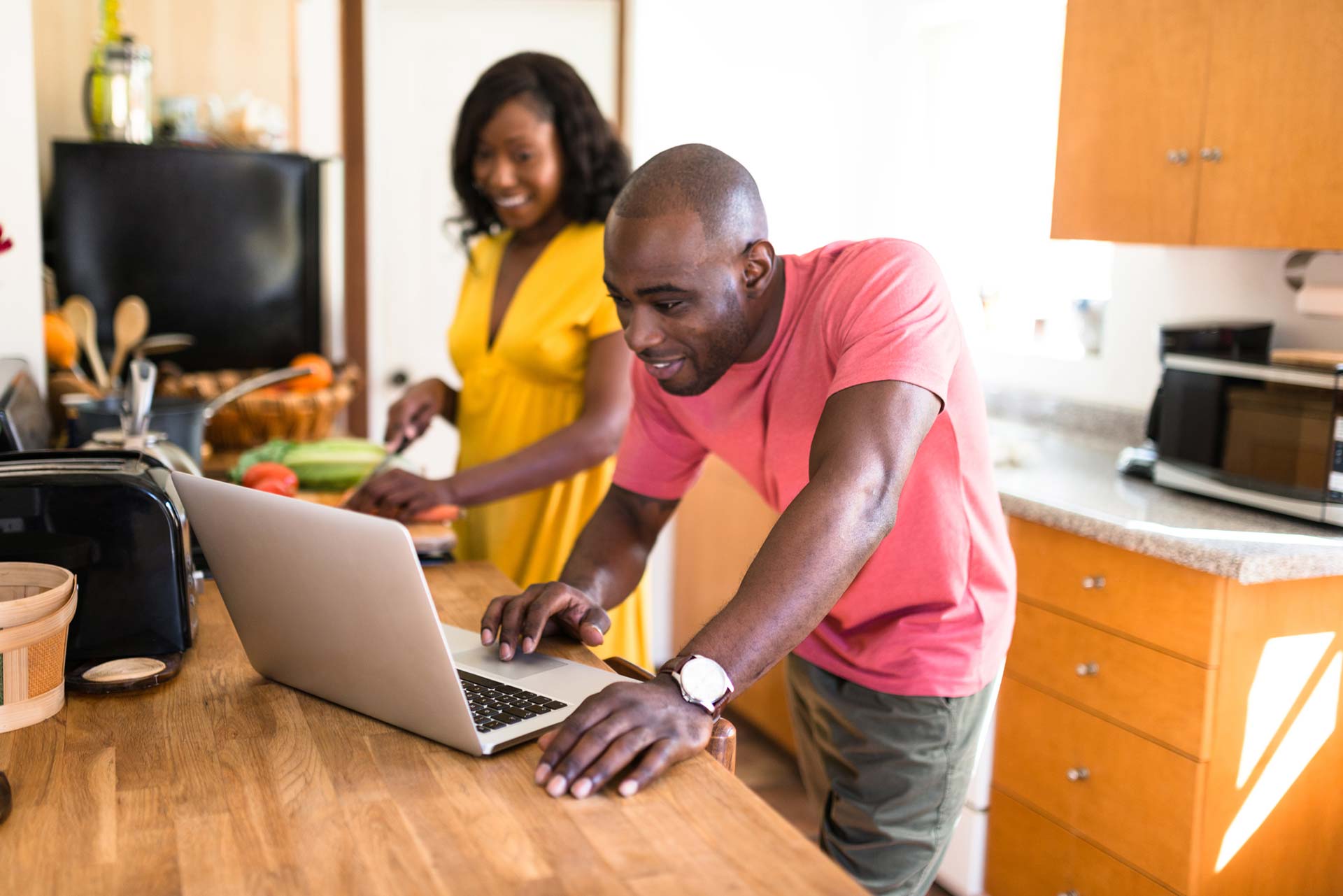Whether you’re a first-time buyer or a seasoned homeowner who’s relocating, buying a house is both exciting and stressful.
If you’re a first-timer, keen to move out of your parents’ home or simply tired of paying rent, you’ll need a secure job, a good credit score and a decent salary to afford a home loan and get a place of your own.
If you already own your home, but you want to scale up or down as your family circumstances change, you need to sell your house for as much as you can, to help you with the cost of a new property. The more you sell it for, the less you’ll need for a home loan. It might even remove the need for a loan altogether.
Whatever your reason for house-hunting, a home is likely to be one of the most expensive assets you’ll ever buy. It can also be an important start to your long-term investment portfolio, and buying the right property could be crucial to your ability to manage your finances responsibly in the future. So, it goes without saying that acting on impulse is asking for trouble. Look before you leap.
Let’s explore some home-buying dos and don’ts.
Dos
Check if you qualify
First, use our affordability calculator to check the size of the home loan that you can afford. Then get preapproved for a home loan. This will help to narrow down your search to affordable properties.
Consult an estate agent
Don’t try to negotiate buying a home directly with the seller. Property ownership is a complicated process that involves attorneys, bond registrations and difficult aspects of property law. An estate agent can not only help you find a house that matches your needs, but they can also advise and guide you through the whole house-buying journey.
Remember that monthly home loan payments are only part of the costs of home ownership
Examine the property carefully
It’s easy to be impressed by pictures or video of a property online, but always visit the property in person for a viewing with an estate agent. This will give you a better feel for the house and the area – and you can check the condition of the buildings, walls and gardens for yourself. You can identify any obvious defects or renovations that you may have to spend more money on. You’ll have to consider the cost of such expenses when you’re deciding the price you’re prepared to pay if you decide to make an offer.
Your estate agent should also advise you on the trends in the area:
- Are property prices in the area currently going up or down?
- What are the security services and the crime rate like?
- Are the municipal water, sewerage and electrical infrastructures safe and well maintained?
- Will the property sell in the future?
Home inspection
A professional home inspection will identify any latent defects in the structure, roof, plumbing, wiring and other fixtures. Include a requirement for a home inspection in your offer to purchase and spare yourself any nasty surprises after you move in.
Know the extra costs
Remember that monthly home loan payments are only part of the costs of home ownership. You’ll also have to pay municipal rates and utility bills, you’ll need to insure your home and its contents, and then there are the costs of security and maintaining the home and the outdoor spaces. Include all these costs in your budget.
If you buy a sectional title property – say, a home in a gated estate – you’ll pay a monthly levy to cover rates, sewerage, security and the maintenance of communal areas (including features like pools or clubhouses). You will also need to pay for your own insurance, electricity, water, and maintenance of the private indoor and outdoor spaces of your unit.
Get accurate information on all these costs when you’re deciding where you can afford to live.
Don’ts
Don’t ignore economic conditions
While it’s exciting to buy your own property, make sure it’s the right time to buy. A rise in interest rates will increase your monthly home loan payments, so don’t take the maximum home loan amount you qualify for. It helps if you can put down a sizeable deposit to make your repayments more manageable. Choose a home and a home loan that you can afford every month, even if your payments increase.
Don’t lose focus
When viewing different properties with your estate agent, be clear about what you want. Don’t get distracted or overwhelmed. Don’t go to more than 4 viewings in a single day. Take notes in a notebook (or take pics and video) as you explore each property. It’s easy to get confused when you see too many homes in quick succession, so taking notes of what you like and don’t like at each house will help you to remember which is which, when you need to make a decision.
Don’t inherit the previous owner’s outstanding payments
Before you make an offer, check whether the property owner currently owes the municipality anything on their rates or utility accounts. Even if you are not liable for those amounts, you may be unable to access municipal utilities while there are arrears outstanding.
The Home-buying Toolkit on the Money app is a handy guide to buying property
It’s wise to make it a condition in your offer to purchase that all such arrears must be paid up before the sale can proceed. That way, you’ll know the property has a clean slate when you want to open your own municipal accounts.
Don’t disregard location
Visit the area more than once – and at different times. Some areas are attractive in the quiet of the working week but get noisy over weekends. Some areas feel less secure by night than they do in daylight. If property prices in the area are falling rather than rising, ask yourself why – and will the reason affect your quality of life?
Don’t wait too long
Of course, you need to be certain before you put in an offer, but remember that you’re not the only one looking. If a property that you like ticks all the boxes and you know that you can afford it, don’t delay and let someone else beat you to it.
Don’t overcapitalise
It may be tempting to buy a ‘classic fixer-upper that needs lots of TLC to restore it to its former glory’, so that you can renovate it and end up with a great house in an area you couldn’t otherwise afford. However, plan such a project realistically. How much will it cost you to convert this property into the home you want, and how low an offer will the seller accept?
Do your sums carefully and estimate the cost of all the changes you want to make to the last cent, to make sure the house will eventually be worth more than you have spent on it. If you don’t, you risk overcapitalising the property – so that when you decide to sell it one day, you don’t get back as much as you’ve put in.
The Home-buying Toolkit on the Money app is a handy guide to buying property. You can speak to a home loan sales agent for guidance when you apply for a home loan.
As a repeat home buyer with Nedbank, you may qualify for an additional discount. Terms and conditions apply.
Did you know that on average, Nedbank pays out around R1.3 million a month in cash back on home loans? In 2025, we paid out more than R16 million in cash back on home loans. For an affordable home loan tailored to your circumstances and value-added extras like up to R20,000 cash back and a 50% discount on your attorney bond registration fees, choose the bank that’s best for your money.
This article is for general information only and does not constitute financial advice under the FAIS Act. Nedbank accepts no liability for any loss arising from reliance on this content. Please consult a qualified advisor before making financial decisions.





